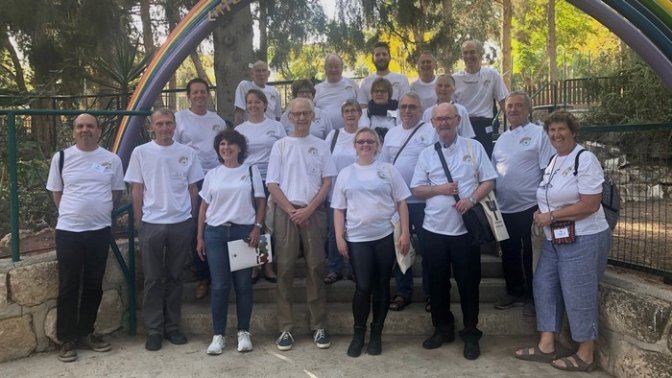Home > Oasi di Pace > Amici di NSWAS > "What kind of a Jew I am" - by Bruno Segre
"What kind of a Jew I am" - by Bruno Segre
Tuesday 12 October 2021

The publisher Casagrande from Bellinzona (Switzerland) has just issued − in ebook format − What kind of a Jew I am, the English version of the book Che razza di ebreo sono io.
Born in 1930 and living most of my life in Milan, I wrote this essay in 2016. The work is largely autobiographical, but it is not an autobiography. My intention was not to propose an umpteenth definition of Jewish identity, but rather to recount some of the tragic events of European and near-eastern history that I have had the opportunity to observe from close up over the course of ninety years, with the eyes of a vigilant and participating witness. Educated in a secular way, i.e. sheltered from any religious indoctrination, I discovered I was Jewish when I was eight years old thanks to the experience of exclusion, flight, and hiding during the years of anti-Jewish persecution that the fascist regime promoted in Italy from 1938 onwards. My father died in 1941, in the middle of the Second World War. Fortunately, under my mother’s courageous leadership, the family managed to avoid deportation and the deadly trap of the Shoah. After the war and the fall of Fascism, my transition to adulthood coincided with the rebirth of democracy in Italy: a political and socio-cultural process in which I felt deeply involved. On a different front, I supported the State of Israel from its very beginnings, since I was convinced that the realisation of the Zionist project constituted a just and legitimate compensation for a human group that had been persecuted, dispersed and marginalised for too many centuries. However, a radical change took place in June 1967 with the Six-Day War. It was a ’miracle’ that aroused among Jews, in Israel and in the diaspora, an emotional wave of jubilation coupled with an unfounded feeling of omnipotence.
My book documents how many of us went so far as to see the State of Israel not just as a refuge for the oppressed, but as the privileged object of a special divine predilection. Very few personalities - among them Yeshayahu Leibowitz and Nahum Goldmann - understood from the beginning that, as a result of the resounding military success, increasingly large numbers of national-religious Jews would settle in the areas of the West Bank that were supposed to have been the scene of the events narrated in the Bible: thus creating the premises for the decades-long Jewish-Israeli occupation of a territory that, in reality, was and is the homeland of millions of Palestinian Arabs. In 1991, I became active, chairing for seventeen years the association of Italian friends of Neve Shalom / Wahat al-Salam: a village created in Israel by Jews and Palestinians who, working together successfully, manage schools where peace is taught. In the course of my long existence, I have taken part with a layman’s approach in some of the diatribes that have crossed the Italian Jewish world in the last century and in the first two decades of the third millennium. Since I consider myself a Jew in my own right, I think it is important to make it clear that ’secular Judaism’ is not synonymous with detachment or rejection of halakhic norms, but is an acknowledgement that Jewish life and culture have a plural dimension. In short, I am convinced that secularism should also be read by Jews as a choice of method by virtue of which the variegated plurality of cultural and religious expressions that the Jewish world has historically produced is welcomed: plurality, in short, not as a ’self-destructive’ aspect, not as a threat to a stainless and immutable tradition, but rather as a wealth harbinger of further enrichment.
Bruno Segre – Milan, Italy
The book can be purchased for Amazon Kindle here.